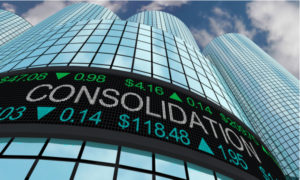There’s a group of big businesses known as “aggregators,” that are buying up small Amazon.com stores, and consolidating them. The bigger these aggregators become, the more power they have both in the market for future acquisitions, but also with respect to Amazon itself. Dave Lee explains in the Financial Times (abridged):
Reaching the top of Amazon’s listings, even for the most innocuous of products, can translate to millions of dollars of sales.
So in the past 18 months, at least 69 start-ups have raised some $7bn to begin buying up successful Amazon sellers, in the hope of building a collection of top brands. The biggest roll-up player, Thrasio, has raised almost $2bn.
For sellers, many of which have spent years painstakingly building up their Amazon sales, it is a bonanza. Prosper Show, the Las Vegas trade event, became a hub for dealmaking, with roll-up players lavishing their targets with lunches, dinners and cocktail parties.
“The aggregators are coming to play,” said Alison Medina, head of content for the event. “They are here to woo.”
While each aggregator claims to have its own approach, the prevailing strategy relies on using scale to streamline management of supply chain and marketing, as well as using the aggregator’s capital to launch new products under already successful brands.
…
How the crowded field of roll-up companies will fare if online sales dip, and what approach Amazon will take as they grow in size and influence, is unclear.
“It’s an exciting opportunity for sellers that want liquidity and to exit the business for a new adventure,” said Joel Sider, an Amazon spokesman.
But, he added: “We expect the majority of sellers and brands will remain independent and continue to use our store for its scale and reach.”
Read more here.

